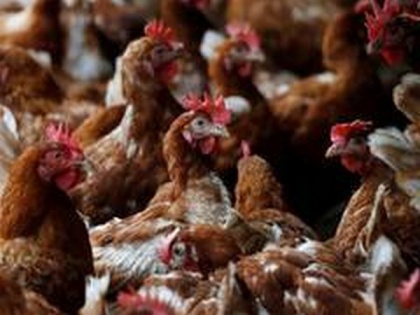First bird flu death in country this year reported in AIIMS, Delhi
By ANI | Published: July 20, 2021 10:12 PM2021-07-20T22:12:30+5:302021-07-20T22:20:02+5:30
All India Institute of Medical Sciences (AIIMS) on Tuesday reported the first bird flu death in the country for this year after a 12-year-old boy undergoing treatment for H5N1 Avian influenza died at its pediatric department.

First bird flu death in country this year reported in AIIMS, Delhi
All India Institute of Medical Sciences (AIIMS) on Tuesday reported the first bird flu death in the country for this year after a 12-year-old boy undergoing treatment for H5N1 Avian influenza died at its pediatric department.
"The 12-year-old boy being treated at the hospital's D5 ward was found to be infected with H5N1 (Avian flu) after the diagnosis. The boy was suffering from leukemia and pneumonia. He was under treatment and admitted to the ICU of AIIMS in Delhi," AIIMS officials told ANI.
"All staff who had exposure to him should monitor themselves for any signs and symptoms of flu and should report if any are present," AIIMS officials said.
H5N1 stands for Highly Pathogenic Asian Avian Influenza (H5N1) Virus.
Avian influenza is a strain of the influenza virus that primarily infects birds, but can also infect humans. This type of flu is most often contracted by contact with sick birds. It can also be passed from person to person.
According to WHO, human cases of H5N1 are rare but if infected, the mortality rate is about 60 per cent.
The H5N1 virus can cause severe flu with a high mortality rate.
Bird flu is caused by a type of influenza virus that rarely infects humans.
Almost all cases of H5N1 infection in people have been associated with close contact with infected live or dead birds, or H5N1-contaminated environments.
The experts believe that the virus does not infect humans easily, and spreads from person to person appears to be unusual.
Infected birds shed avian influenza virus in their saliva, mucous and feces. Human infections with bird flu viruses can happen when enough virus gets into a person's eyes, nose or mouth, or is inhaled.
( With inputs from ANI )
Disclaimer: This post has been auto-published from an agency feed without any modifications to the text and has not been reviewed by an editor
Open in app